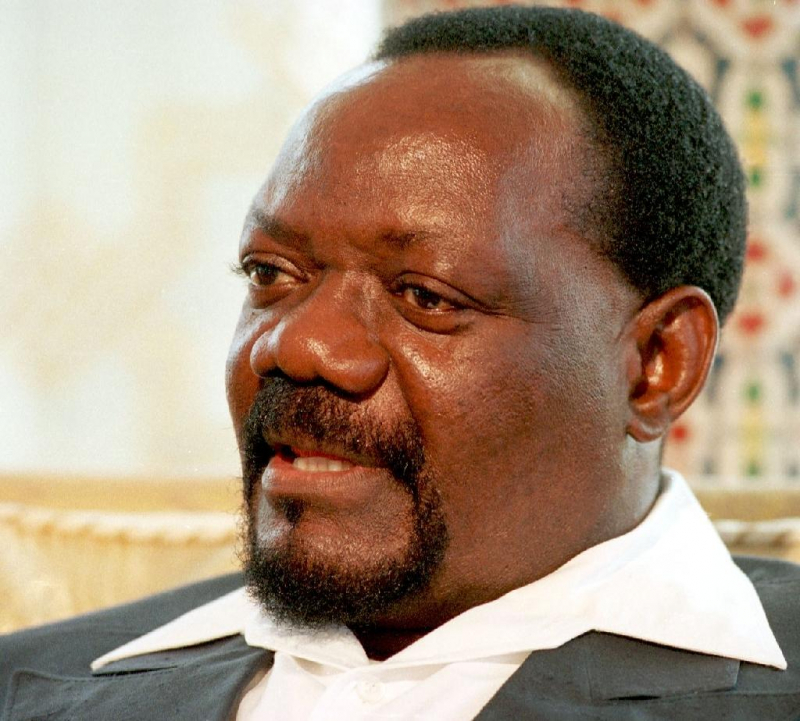Jonas Savimbi
Jonas Malheiro Savimbi (March 3, 1934 - February 22, 2002) was an Angolan revolutionary politician and rebel military leader who founded and led the National Union for Total Independence of Angola (UNITA). He is regarded as one of the most important historical figures in Angola. From 1966 to 1974, UNITA waged a guerrilla war against Portuguese colonial rule, then clashed with the People's Movement for the Liberation of Angola during the Angolan Civil War. In 2002, Savimbi was killed in a clash with government troops.
Savimbi was killed on 22 February 2002, after surviving more than six assassination attempts and being reported dead at least 16 times, in a battle with Angolan government troops along riverbanks in the province of Moxico, his birthplace. During the firefight, Savimbi sustained 15 gunshot wounds to his head, throat, upper body, and legs. Savimbi returned fire, but his wounds were fatal; he died almost instantly.
Savimbi's somewhat mystical reputation for eluding the Angolan military and their Soviet and Cuban military advisors led many Angolans to doubt the veracity of reports of his death in combat until pictures of his bloodied and bullet-riddled body appeared on Angolan state television and the United States State Department subsequently confirmed it. He was laid to rest in the Luena Main Cemetery in the Mexican province of Moxico. On 3 January 2008, his tomb was vandalized, and four members of the MPLA's youth wing were charged and arrested. His body was exhumed and publicly reburied in 2019.
António Dembo took over as UNITA's interim leader in February 2002, succeeding Savimbi. But Dembo had been wounded in the same attack that killed Savimbi, and he died ten days later, leaving Paulo Lukamba in charge. Six weeks after Savimbi's death, UNITA and the MPLA signed a ceasefire, but Angola remains politically divided between MPLA and UNITA supporters. A parliamentary election in September 2008 yielded an overwhelming majority for the MPLA, but international observers questioned its legitimacy.
Savimbi's legacy has been a source of contention in the years since his death. "a very charismatic man, a man who exuded power and leadership. We can't forget that for a large segment of the population, UNITA represented something," Alex Vines, head of the Africa program at London-based Chatham House research institute, said in February 2012. University of Oxford Africa expert Paula Roque says Savimbi was "a very charismatic man, a man who exuded power and leadership. We can't forget that for a large segment of the population, UNITA represented something







